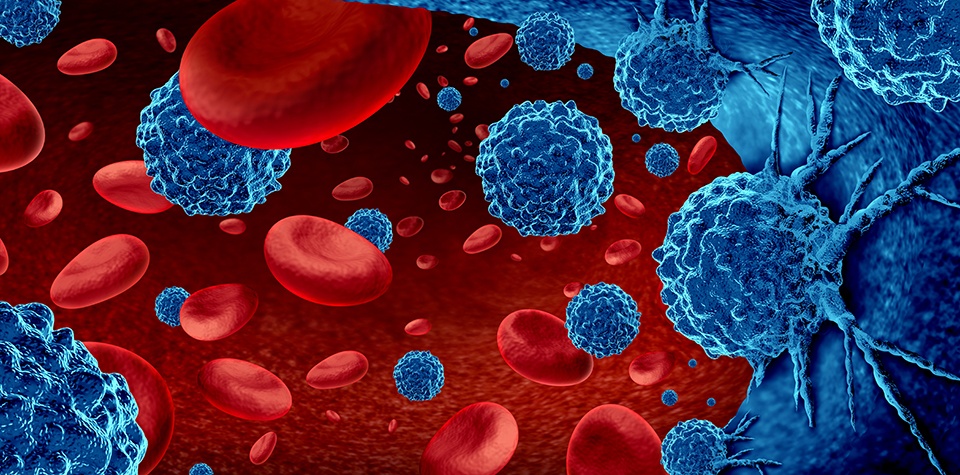
This week on DocWire, we covered the latest breaking research from the American Society of Hematology (ASH) 2021 Annual Meeting, covering advances in CAR T-cell immunotherapies, new treatments for major blood cancers, and more.
The Latest Coverage from ASH 2021
- New Data on CAR T-Cell Therapies
- Managing Non-Hodgkin Lymphomas
- Focus on Graft Versus Host Disease
- Updates in Myelodysplastic Syndromes
Keep reading for the breakdown on these top stories from the ASH Annual Meeting.
Updated Results from MajesTEC-1 Trial of Teclistamab
Findings from phase II of the MajesTEC-1 study on teclistamab were presented for the first time at ASH. According to researchers, teclistamab displayed a manageable safety profile at the recommended phase II dose and continued to produce meaningful and durable responses in patients with heavily pretreated relapsed or refractory multiple myeloma (MM).
Of 40 patients treated at the phase II dose, the overall response rate (ORR) was 65%, with a very good partial response or better (≥VGPR) rate of 60%, and a complete response or better (≥CR) rate of 40%.
The most common nonhematologic adverse events (AEs) among the whole cohort (phase I/II) was cytokine release syndrome (CRS, 67%; grade ≥3, 1%). The most common hematologic AEs were neutropenia (53%; grade ≥3, 45%), anemia (41%; grade ≥3, 27%), and thrombocytopenia (33%; grade ≥3, 18%). Four patients developed grade I or II immune effector cell-associated neurotoxicity syndrome (ICANS), which were resolved.
Related Video: Shaji Kumar on the Changing Immunotherapy Landscape in Myeloma
https://www.docwirenews.com/conference-coverage/ash-conference-coverage/updated-results-from-the-majestec-1-trial-of-teclistamab/
Real-World CAR T Data in MCL
Following its FDA approval in 2020 based on results from the ZUMA-2 trial, brexucabtagene autoleucel (brexu-cel), a CD19-targeted chimeric antigen receptor (CAR) T-cell therapy, has been implemented into standard care for patients with relapsed/refractory mantle cell lymphoma (MCL). In a subsequent study evaluating data on the use of brexu-cel in real-world practice, presented at ASH 2021, researchers judged the treatment to have “encouraging” safety and efficacy profiles in routine care.
At a median follow-up of 3 months, the rate of CRS was 88%, with 8% considered grade 3 or higher. The rate of ICANS was 58%, with 33% considered grade 3 or higher. No fatal CRS or ICANS cases were reported. At day 30 response assessment in 81 evaluable patients, the ORR was 86%, with a complete remission rate of 64%. Among patients who responded at day 30, the rate of continued response over three months was 83.7%. =
Even though 73% of the real-world patients would have been ineligible for ZUMA-2 enrollment, their ORR and CR rates were comparable to those reported in the study’s cohort, leading the authors to consider brexu-cel generally safe and effective. However, they did acknowledge that “longer follow-up is necessary to confirm long-term safety and efficacy.”
More from ASH: Frontline R-BAC Shows Sustained Efficacy in Older MCL Patients
https://www.docwirenews.com/conference-coverage/ash-conference-coverage/car-t/real-world-experience-with-brexucabtagene-autoleucel-for-relapsed-refractory-mantle-cell-lymphoma-2/
Targeted Treatment for CLL in Elderly Patients
Although individuals older than 80 years make up more than 20% of cases of chronic lymphocytic leukemia (CLL), this population is underrepresented in clinical drug trials, and data on treatment outcomes are limited. In a pooled analysis, researchers found that very old patients treated with targeted agents demonstrated comparable survival to their younger counterparts.
The most frequent frontline regimens were venetoclax plus obinutzumab (82%), bendamustine debunking with ibrutinib plus obinutuzumab (9%), venetoclax plus obinutuzumab and ibrutinib (6%), and bendamustine with ibrutinib plus ofatumumab (3%). The ORR was 73%, with 36% of patients achieving a CR. The rates of undetectable measurable residual disease in this subgroup were 73% in peripheral blood and 39% in bone marrow.
Based on the average mortality rate in the ≥80 years age group, the standardized mortality ratio was 0.78 (95% confidence interval 0.39-1.4), with 11 observed deaths versus 14 expected deaths.
“Very old patients treated with targeted agents have a comparable survival to an age- and sex-matched population, suggesting that initiating treatment in elderly and potentially frail patients is beneficial,” the authors concluded. “Dedicated studies are warranted for this clinical setting.”
More from ASH: High Rate of Undetectable MRD with Venetoclax-Based Regimen in CLL
https://www.docwirenews.com/conference-coverage/ash-conference-coverage/ash-cll/study-finds-first-line-targeted-treatment-for-cll-is-beneficial-in-elderly-patients/
Factors Prognostic of Ruxolitinib Failure in Chronic GVHD
A poster presented at ASH 2021 reported several factors associated with ruxolitinib failure in patients with chronic graft-versus-host disease (GVHD), including GVHD severity and type of organ involvement.
Additionally, the researchers conducted an analysis of real-world data regarding ruxolitinib efficacy among 47 patients with chronic GVHD. The ORR was 46.8%, 61.8%, and 62.3% at three, six, and 12 months. However, patients with severe grade cGVHD showed a lower ORR rate at six months compared to those with moderate/mild grade cGVHD at (46.6% vs. 81.1%).
Researchers observed a 33.4% rate of treatment failure. At 12 months, the failure-free survival rate in the overall population was 64.6%, while the overall survival rate was 83.3%. The authors found no difference in ORR between patients with steroid-resistant and steroid-dependent cGVHD, or according to previous treatment with a tyrosine kinase inhibitor for GVHD.
More from ASH: Evaluating Adoptive Immunotherapy to Prevent Acute GVHD
https://www.docwirenews.com/conference-coverage/analysis-identifies-factors-prognostic-of-ruxolitinib-failure-in-chronic-gvhd/
Want to see more oncology news?
Check out last week’s Round-Up, and be sure to keep up with the latest oncology news and cancer research here on DocWire, updated daily!







 © 2025 Mashup Media, LLC, a Formedics Property. All Rights Reserved.
© 2025 Mashup Media, LLC, a Formedics Property. All Rights Reserved.